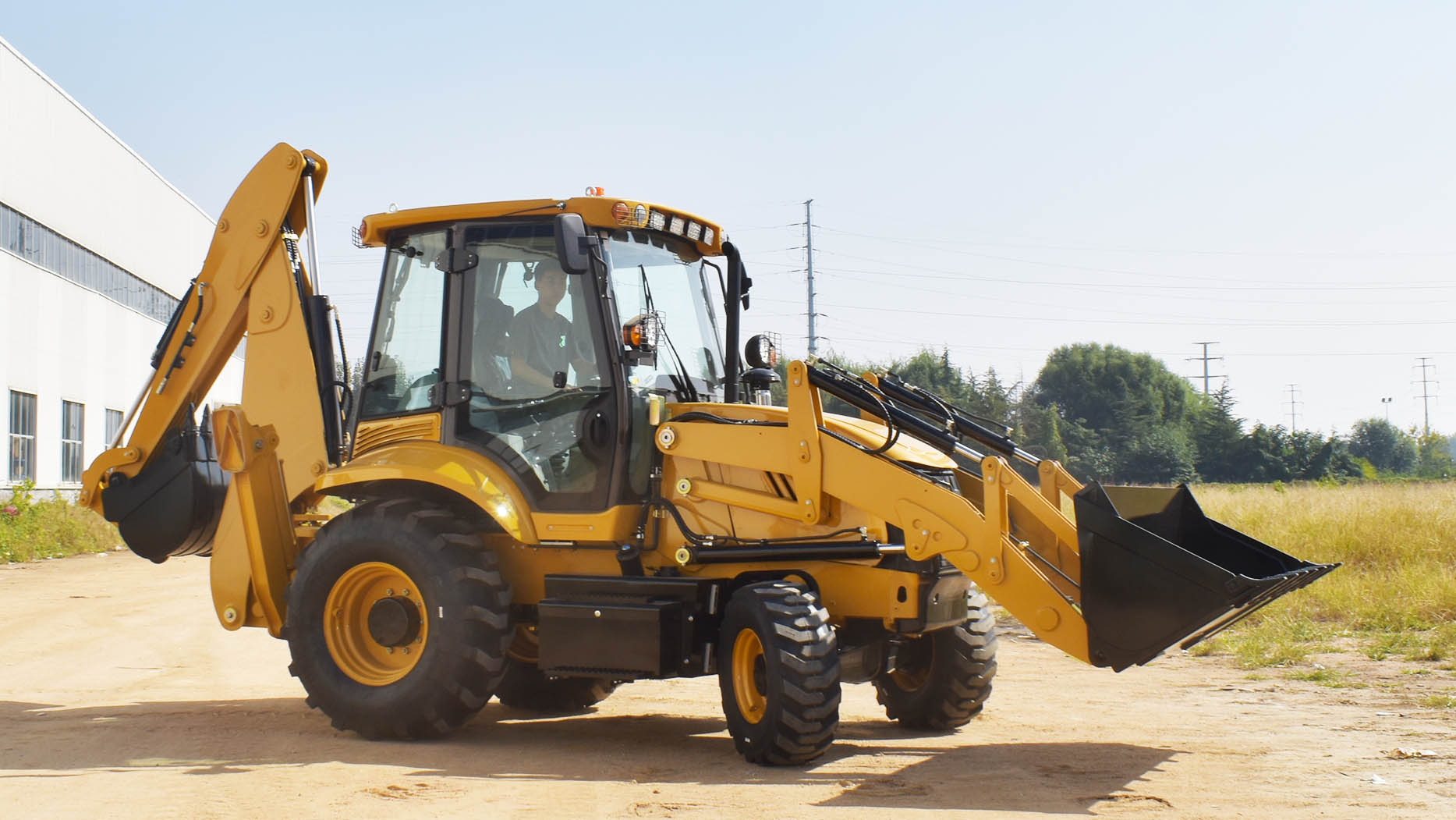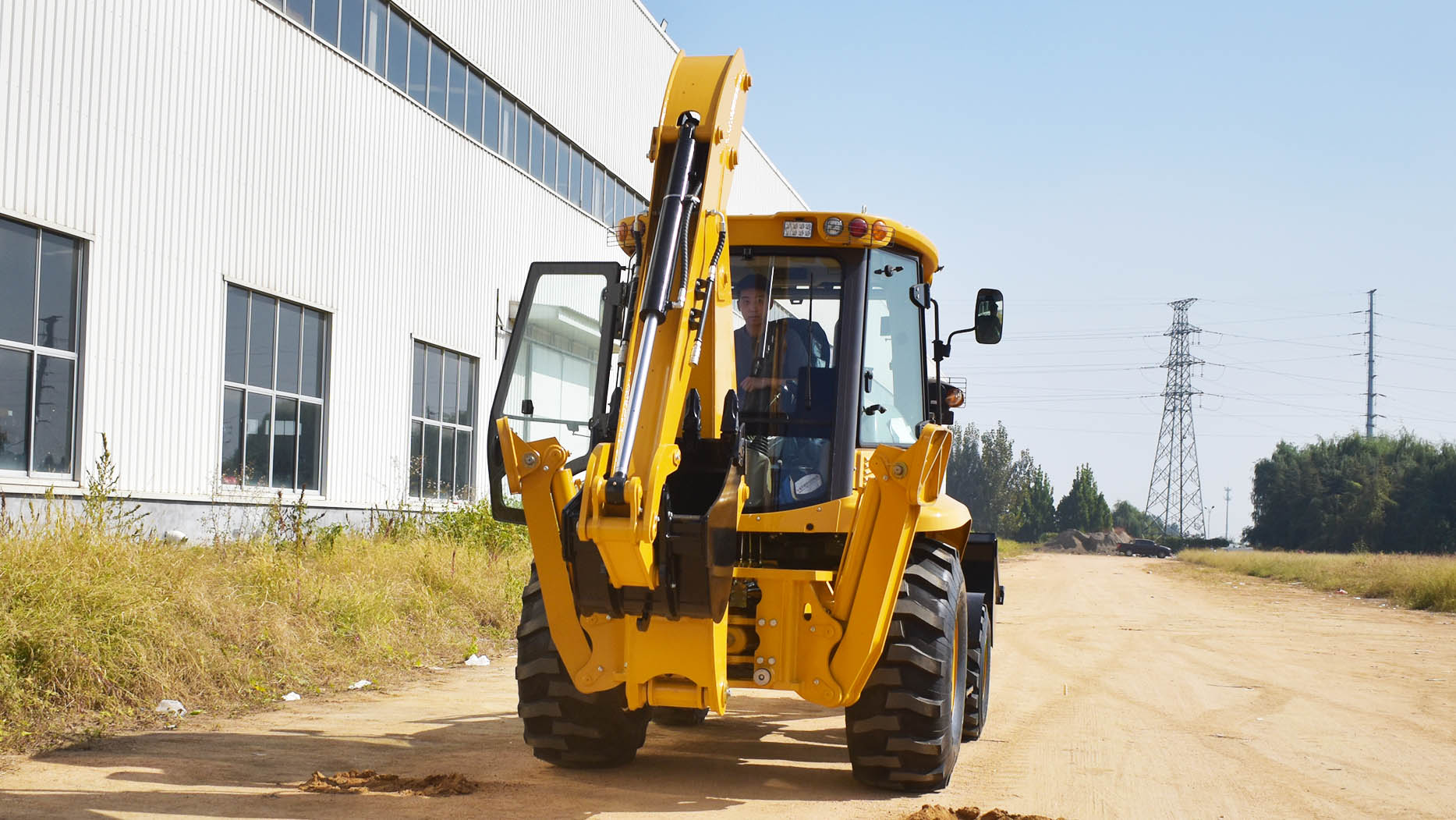The question of whether a backhoe is "titled" is deceptively simple, yet it plunges into a complex web of regulations, vehicle classifications, and state-specific laws. Unlike passenger vehicles, which are universally titled, heavy equipment like backhoes occupy a gray area, leading to significant confusion among owners, operators, and even law enforcement. This article delves into the nuances of backhoe ownership, exploring the factors that determine whether a title is required and the implications for registration, insurance, and resale.
Understanding the Core Issue: Vehicle Classification and Usage
The central issue revolves around how a backhoe is classified and, more importantly, how it's used. The term "backhoe" itself encompasses a range of machines, from compact tractor loader backhoes (TLBs) to larger, dedicated construction equipment. These machines can be used for various purposes, including:
Construction and Excavation: Digging trenches, foundations, and performing general earthmoving tasks.
Landscaping and Agriculture: Clearing land, planting trees, and maintaining drainage systems.
Utility Work: Installing and repairing underground pipes and cables.
Private Property Maintenance: Digging ponds, clearing debris, and general upkeep.
The key differentiator is whether the backhoe is primarily operated on public roads or confined to private property and job sites.
Titles vs. Registrations: A Crucial Distinction
It's essential to distinguish between a "title" and a "registration."
Title: A legal document that establishes ownership of a vehicle. It serves as proof of ownership and is typically required for transferring ownership.
Registration: A permit that allows a vehicle to operate on public roads. It's often associated with licensing and is subject to state-specific regulations.
While a title establishes ownership, registration grants the privilege to operate on public thoroughfares. Therefore, a backhoe might have a title but not a registration, or vice versa, or neither.
Factors Influencing Titling and Registration Requirements:
Several factors determine whether a backhoe requires a title or registration:
State Laws: Each state has its own regulations regarding vehicle titling and registration. Some states may require titles for all heavy equipment, while others may exempt certain types or sizes.
Road Usage: If a backhoe is frequently driven on public roads, it's more likely to require registration and potentially a title. However, if it's primarily transported on a trailer or operated on private property, titling and registration may not be necessary.
Size and Weight: Larger, heavier backhoes may fall under commercial vehicle regulations, which often mandate titling and registration. Smaller, compact TLBs may be exempt in some states.
Intended Use: Backhoes used for commercial purposes are more likely to require titling and registration than those used for private, recreational, or agricultural purposes.
Manufacturer's Certificate of Origin (MCO): A document issued by the manufacturer that establishes the original ownership of the machine. This document is often required for obtaining a title.
State-Specific Variations: A Patchwork of Regulations
Navigating the regulations requires careful examination of each state's laws. For example:
Some states treat backhoes as "off-road vehicles" or "construction equipment," exempting them from standard titling and registration requirements.
Other states may require titles for backhoes exceeding a certain weight or used for commercial purposes.
States may also have specific regulations regarding the transportation of backhoes on public roads, including requirements for permits, safety equipment, and insurance.
The Implications of Titling and Registration:
The decision to title and register a backhoe has several implications:
Proof of Ownership: A title provides clear legal proof of ownership, which is essential for transferring ownership, obtaining financing, and resolving disputes.
Insurance: Insurance companies often require proof of ownership and registration before providing coverage. Titling and registration can simplify the insurance process.
Financing: Lenders typically require a title as collateral for loans. Without a title, it may be difficult to secure financing for a backhoe.
Resale: A title can make it easier to sell a backhoe, as it provides assurance to potential buyers regarding ownership.
Legal Compliance: Operating a backhoe without the required title or registration can result in fines and penalties.
Theft Recovery: A title and proper records will greatly assist law enforcement in recovering a stolen backhoe.
Practical Considerations for Backhoe Owners:
Given the complexity of the regulations, backhoe owners should take the following steps:
Consult State DMV or Equivalent Agency: Contact the state's Department of Motor Vehicles (DMV), Department of Revenue, or equivalent agency to determine the specific titling and registration requirements.
Review Local Ordinances: Check with local authorities for any ordinances that may affect backhoe operation or transportation.
Obtain a Manufacturer's Certificate of Origin (MCO): If the backhoe is new, ensure you receive the MCO from the dealer.
Maintain Accurate Records: Keep detailed records of ownership, maintenance, and repairs.
Consider Voluntary Titling: Even if not required, consider voluntarily titling the backhoe for added protection and ease of resale.
Secure Appropriate Insurance: Obtain insurance coverage that meets your specific needs and complies with state regulations.
Ensure Proper Transportation: If transporting the backhoe on public roads, comply with all transportation regulations, including obtaining necessary permits and using appropriate safety equipment.
Understand "Farm Use" exemptions: Many states have exemptions for farm equipment, but those exemptions have very specific limitations. Make sure you fully understand them.
The Role of Federal Regulations:
While state laws primarily govern titling and registration, federal regulations may also play a role. For example, the Federal Motor Carrier Safety Administration (FMCSA) has regulations regarding the transportation of heavy equipment on interstate highways.
Conclusion:
Whether a backhoe is titled depends on a confluence of factors, including state laws, road usage, size, and intended use. The absence of a universal standard necessitates careful research and consultation with relevant authorities. While the process can be complex, understanding the regulations is crucial for ensuring legal compliance, protecting your investment, and facilitating smooth operation and resale. By taking the necessary steps to understand and comply with the applicable laws, backhoe owners can navigate the complexities of heavy equipment ownership with confidence.
Post time:Feb.21.2025



